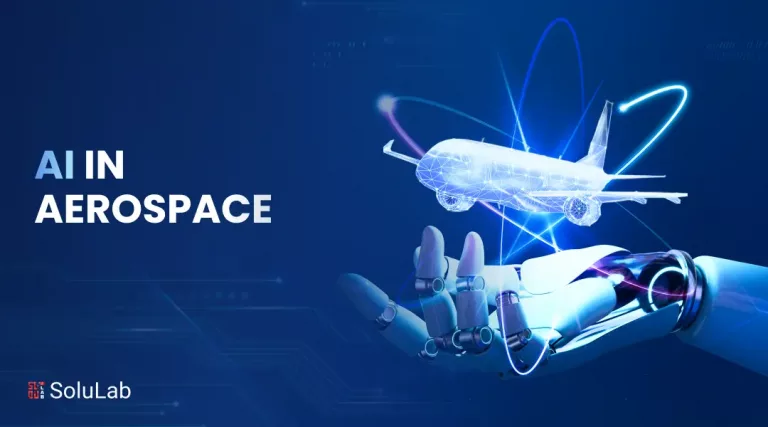New models are popping up day by day around blockchain technology. One of its largest propagandists is asset tokenization that can play a vital role in entirely transforming the way we look at the financial industry. At present, there are about trillions of dollars locked in assets that cannot be exploited or to which there is very little access.
Different markets like art, real estate, scarce IP, and valuable resources, are primarily owned by institutional investors, thereby allowing very little scope for investment in these markets by the retail investors. Therefore, the retail investors have the only possibility of investing in either debt or equity markets, where there’s high volatility and risk. It is precisely the situation where tokenization of assets comes to the rescue.
Concept of Tokenization OF Assets
Tokenization of assets refers to the process by which an issuer develops digital tokens on a blockchain that represents either digital or physical assets. Blockchain in this regard guarantees that the tokens representing an asset, once bought by any individual, their ownership cannot be erased or changed by any single authority, thereby ensuring that the ownership of that asset remains completely immutable.
By tokenization, any real-world asset both tangible and intangible can be easily digitized. Then they are broken down into minute parts that take the form of tokens. Speaking in a broader sense, a token represents something else, and in this case, each of the tokens represents a proportional part of the digitized asset. It also means that the owner of the token has the associated ownership rights or other types of rights.
Different Types of Tokenized Assets
-
Fungible Asset Tokenization –
Each of the tokenized fungible assets is interchangeable and has the same market value as well as validity. Moreover, a fungible asset can be divided into an infinite number of decimal points as per the configuration during their issuance with each of the units having the same value and validity. -
Non-Fungible Asset Tokenization –
Non-fungible asset tokens are non-interchangeable, hence cannot be replaced with the same type of tokens because each of them represents a unique value. These assets are usually not divisible. Each of the tokens differs from the other of the same type and possesses unique information as well as attributes. -
Tangible Asset Tokenization –
Tangible asset tokens refer to the collection of assets that possess specific monetary value in addition to the general availability in the physical form.
Need of Tokenization of Assets to Deal with the Issues in Traditional Asset Management System
Asset management is the process of producing, procuring, storing, as well as managing all documents related to different assets before, during, and after the procedure of transferring ownership. Distributed ledger technology or blockchain technology could play a crucial role in serving as a single source of truth for reducing mismatches in information. It is an extremely dependable instrument for trading real estate, equities, stocks, bonds, and a number of similar types of assets.
Asset tokenization came into existence because of the current asset management scenario. The current asset management ecosystem consists of different stakeholders, including a number of intermediaries like brokers, investors, auditors, and custodians, thereby bringing about a substantial increase in the overall cost of the process. The traditional asset management system is very much vulnerable to fraud and errors. Additionally, the need for tokenization of assets is to appropriately deal with the following issues in the current asset management system.
- The present asset management system is dependent on approaches that tend to create a lot of difficulties in accurately identifying the source of error when it occurs. Moreover, the complexity of the management of assets with traditional tokenization also creates hindrances to ensure accountability.
- Fragmented data storage with the existing mechanisms for tokenization gives rise to the requirement of blockchain tokenization. Each of the parties associated with the transactions of asset management with traditional tokenization has its own data versions due to which difficulties are created incorrectly identifying error sources that tend to rise with the increasing complexity of the processes.
- Another major issue that is present in the current asset management system is the highly complicated onboarding process. Spiteful agents could support the prolonged duration and slow speed of conventional processes of tokenization. This could give hackers the chance to exploit the vulnerabilities as a result of the complications in the overall process and make use of forged documents or identities for getting on board without any kind of difficulties.
Importance of Tokenization OF Assets
The importance of tokenization of assets is two-fold that is from the point of view of the asset owners as well the investors.
Benefits for the Asset Owners
- The liquidity of the asset is increased to a significant extent.
- Liquidated assets ensure that the prices are fair.
- The cost of asset management is readily reduced which proves to be quite advantageous.
Benefits for the Investors
- Reduced paperwork for a tokenized property makes it possible for investors to invest smaller amounts in property and hence can benefit from enhanced liquidity via tokenization.
- Lock-up periods are shorter in the case of tokenization of assets which allows investors to sell the assets with ease in a liquid market.
- The entire process is completely transparent since blockchain is the technology behind the tokenization of assets where investors can see the detailed history of a holding for making a more informed decision.
- Identity is secure with the ownership and decentralized identity details kept on the blockchain.
Future of Tokenization OF Assets
Tokenization of assets is all set to transform the entire asset management scenario that exists today. It democratizes ease of access to the markets yet keeping fairness and security intact. The only obstacle at present is the legal boundaries. The creation of a legal bridge between the assets and blockchain or distributed ledger technology requires legal professionals to deal with tax-related as well as cross-jurisdictional problems. Nonetheless, new solutions are quite certain to come into the market, which will eradicate these problems in the time to come.
Quick Read: Tokenization Nlp – Methods, Types and Challenges




